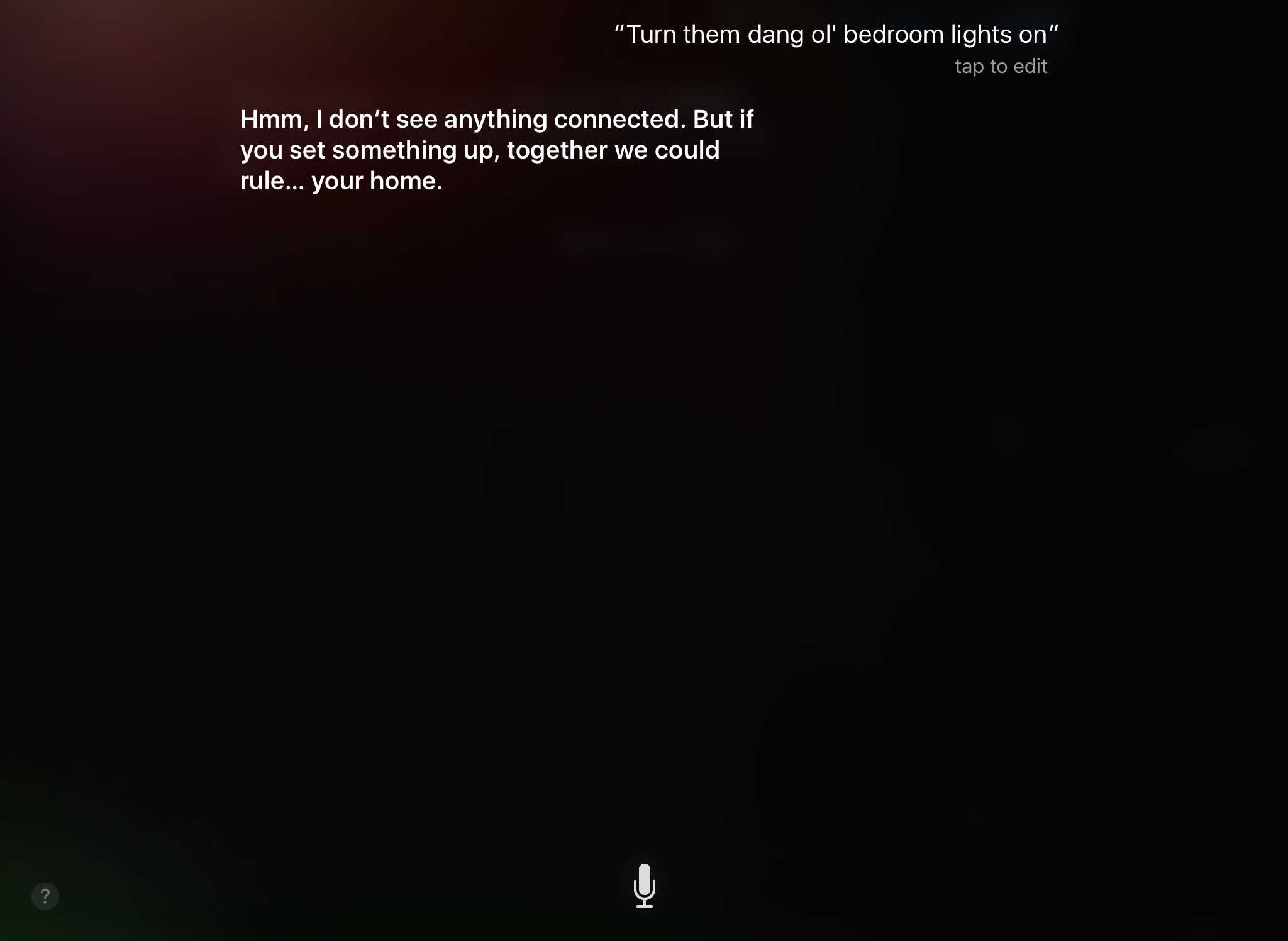Misunderstandings and repeated requests are among the hurdles that everyone who uses Siri — or any digital assistant, for that matter — have to deal with to run things with their voice, but some groups have it even harder than others.
If I want to make the smartbulb in my bedroom lamp turn white, for example, Siri always interprets “Make the Bedroom white” as “Make the Bedroom light,” and I can’t even imagine why I would be saying that. I can say, “Make the Bedroom green” or any other color, and it will work. But in order to get that direct-sunlight jam happening, I have to be more specific, like, “Make the bedroom light white.” And that’s not the worst problem to have with miraculous future-tech, but it is kind of hard to say.
But it could be worse; I could belong to one of the groups that have difficulty having even the most basic of interactions with Siri. And their problems don’t stem the program’s occasional deafness but rather its inherent incompatibility with how they speak.
We’re talking about Texans, y’all.
Okay, well it’s not just Texans, but that was the demographic that Guardian writer Tom Dart singled out in a recent article. Dart concludes that “Siri is at [its] best when addressed in standard English, with accents toned down and slang avoided where possible.”
And while that might not be a huge deal to me, I’m a Midwesterner, and we have just about the most boring and robot-friendly way of speaking that exists outside of actually being robots. People whose vocal stylings include accents of any kind or a heaping helping of colloquialisms won’t have much success addressing the assistant naturally.
It may not be too high a task of double coding to ask Siri “Find me a restaurant that serves steak” instead of “I’m hankering for a steak.” But it’s a bigger deal entirely when the thing keeping Siri from understanding you is the way in which you pronounce every word you say.
“I’ve had a bunch of people from Australia and India say they only really get along with Siri if they fake an American accent,” University of Texas sociolinguist Lars Hinrichs told Dart.
And that’s especially weird because one of Siri’s voice options includes an Australian accent. So as charming as it is, that feature has no depth and is really just a way to make Siri sound super-cute all the time.
The best solution currently is to do exactly what those Australians and Indians do: Change your voice to match the inputs that the device is calibrated to. That means dropping or minimizing the accents and avoiding the slang. It’s hardly ideal and suggests that technology is forcing everyone to sound the same or conform to one specific, “proper” way of speaking. But it could also be one of those temporary, context-driving behaviors like not swearing around your grandmother. You can curse all you want once you leave that house, but you really don’t want to offend Nana. She’s lived through wars.
“Most people have what we would call a telephone voice, so they actually change away from their local family accent when they’re speaking on the telephone to somebody they don’t know,” Language Technologies Institute professor Alan Black said. “People speak to machines differently than how they speak to people. They move into a different register. If you’re standing next to somebody in an airport or at a bus stop or something, you can typically tell when they’re talking to a machine rather than talking to a person.”
Eventually, it’s likely that Siri and its contemporaries like Microsoft’s Cortana and Google Now will get smart enough to pick up on variable and region-coded aspects of speech, and none of this will matter. But until that happens, we’ll all just have to meet our robot partners’ weird, specific demands.


